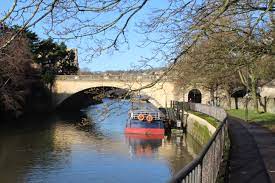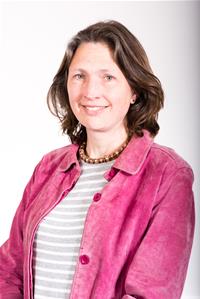Tens of millions of pounds are to be invested in new measures to achieve net zero by Bath & North East Somerset Council as it looks to tackle the impact of the climate and ecological emergency on the area.
The Liberal Democrat-controlled council, which declared a climate emergency in 2019, is to allocate more than £38m over the next five years to projects designed to drive down carbon emissions.

This includes new funding of £27.4m agreed at its budget and Council Tax meeting earlier this week.
Among the new measures will be £2.3m to refurbish the council’s commercial estate, addressing the repair backlog and planning energy efficiency, and £14.2m to modernise waste services to further improve recycling rates.
Meanwhile, an additional £9.2m investment will be made in the new state-of-the-art Keynsham Recycling Hub. Designed to help residents recycle more, the new facility will incorporate a range of sustainability measures including on-site renewable energy generation from a 3800 sq m solar panel array with a predicted output of 783kWp.
- £754,000 to expand the council’s green vehicle fleet
- £150,000 investment in green infrastructure to include the development of a nature recovery and delivery plan
- £800,000 matching contribution towards the new city region sustainable transport infrastructure projects.
Other new measures include:

These commitments come on top of more than £11m previously allocated in the council’s five-year capital programme, which included £5.062m for Bath’s Riverline project, pictured, developing a 10km walking/cycling connection between Newbridge and Batheaston/Bathampton, improving biodiversity, landscaping and green space and £1.5m for vehicle upgrades through the financial assistance scheme as part of the Clean Air Zone, which was introduced last March.
Other financial commitments already made are:
- £2.206m for the development and delivery of ‘liveable neighbourhoods’ to promote healthier, more sustainable communities and reduce car usage
- £1.736m for renewable energy development
- £206,000 for air quality management
- £561,000 for active travel schemes to encourage more walking and cycling.
The council’s ambition is to become carbon neutral by 2030. Its pioneering Clean Air Zone – the first in the UK outside London – was launched to urgently tackle harmful levels of air pollution in the city.
Last month it said emissions from its buildings and operations had been cut by two thirds compared to the baseline year of 2009.

It also said it was seeking the public’s views on ideas for change set out in a Journey to Net Zero document, including introducing traffic cells to remove through-traffic from the city centre and a potential new mass transit system.
Council deputy leader and cabinet member for climate and sustainable travel, Sarah Warren, pictured, said: “I am delighted that the council has agreed to this significant investment to tackle the climate and ecological emergency.
“Despite challenging financial pressures, it is important we do not lose sight of the pressing need to take action to reduce carbon emissions. Time is ticking, we have just eight years to reach our net zero goal. It’s why this investment now is so crucial.”
Over the coming year the council will continue to work with its communities, partners, local, regional and national government to further cut emissions.
Its action plan for 2022/23 includes:
- working with the West of England Combined Authority (WECA) and West of England councils on a regional Climate Emergency Action Plan
- Addressing skills, supply chain and delivery issues to speed up retrofit
- Supporting businesses to decarbonise and transition to a low carbon economy
- Delivering the first ‘liveable neighbourhood’ schemes
- Implementing the Journey to Net Zero plan
- Installing solar panels on council property, including two more care homes
- Helping to accelerate the delivery of renewable energy.



















